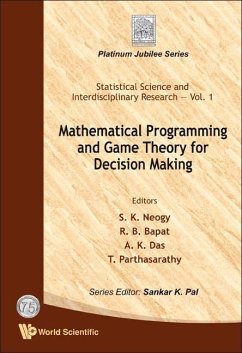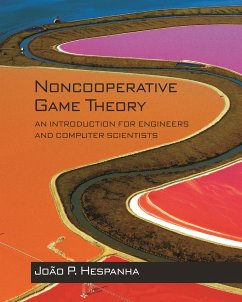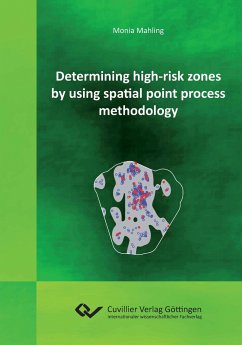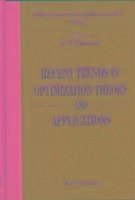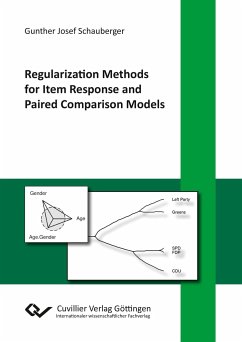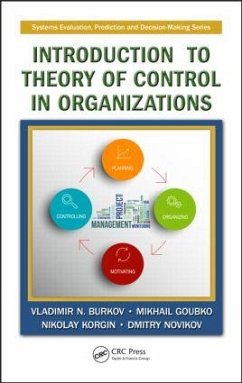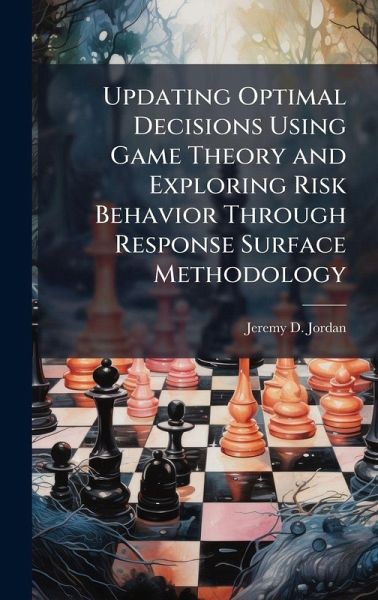
Updating Optimal Decisions Using Game Theory and Exploring Risk Behavior Through Response Surface Methodology
Versandkostenfrei!
Versandfertig in über 4 Wochen
29,99 €
inkl. MwSt.
Weitere Ausgaben:

PAYBACK Punkte
15 °P sammeln!
This thesis utilizes game theory within a framework for updating optimal decisions based on new information as it becomes available. Methodology is developed that allows a decision maker to change his perceived optimal policy based on available knowledge of the opponents strategy, where the opponent is a rational decision maker or a random component nature. Utility theory is applied to account for the different risk preferences of the decision makers. Furthermore, response surface methodology is used to explore good risk strategies for the decision maker to approach each situation with. The te...
This thesis utilizes game theory within a framework for updating optimal decisions based on new information as it becomes available. Methodology is developed that allows a decision maker to change his perceived optimal policy based on available knowledge of the opponents strategy, where the opponent is a rational decision maker or a random component nature. Utility theory is applied to account for the different risk preferences of the decision makers. Furthermore, response surface methodology is used to explore good risk strategies for the decision maker to approach each situation with. The techniques are applied to a combat scenario, a football game, and a terrorist resource allocation problem, providing a decision maker with the best possible strategy given the information available to him. The results are intuitive and exemplify the benefits of using the methods. This work has been selected by scholars as being culturally important, and is part of the knowledge base of civilization as we know it. This work was reproduced from the original artifact, and remains as true to the original work as possible. Therefore, you will see the original copyright references, library stamps (as most of these works have been housed in our most important libraries around the world), and other notations in the work. This work is in the public domain in the United States of America, and possibly other nations. Within the United States, you may freely copy and distribute this work, as no entity (individual or corporate) has a copyright on the body of the work. As a reproduction of a historical artifact, this work may contain missing or blurred pages, poor pictures, errant marks, etc. Scholars believe, and we concur, that this work is important enough to be preserved, reproduced, and made generally available to the public. We appreciate your support of the preservation process, and thank you for being an important part of keeping this knowledge alive and relevant.






